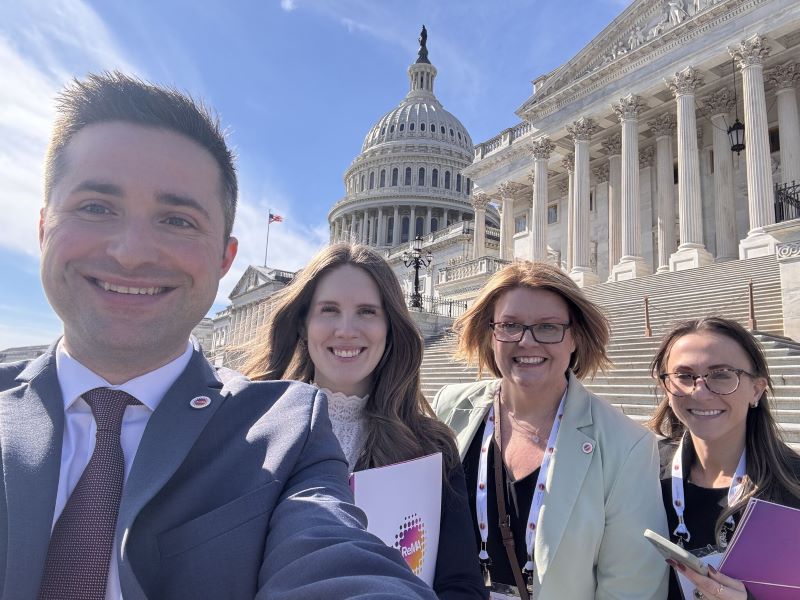Superfund
Superfund refers to the Comprehensive Environmental Response, Compensation and Liability Act, or “CERCLA,” which was passed into law in December of 1980. The statute provides the federal government broad authority to clean up uncontrolled, or abandoned, sites where “hazardous substances” are present and pose an imminent threat to human health or the environment.

An Overview: Superfund
Superfund refers to the Comprehensive Environmental Response, Compensation and Liability Act, or “CERCLA,” which was passed into law in December of 1980. The statute provides the federal government broad authority to clean up uncontrolled, or abandoned, sites where “hazardous substances” are present and pose an imminent threat to human health or the environment. Superfund identifies four categories of “potentially responsible parties” (PRPs) that can be held to strict joint and several liability for the costs of responding to the release (or threatened release) of hazardous substances. Strict liability is absolute: It is imposed without regard to intent or negligence. Joint and several liability means that each and every PRP can be held individually liable for the entire cost of the cleanup. Following are the four categories of PRPs:
- The current owner or operator of the site;
- Any person who owned or operated the site at the time of disposal or release of hazardous substances;
- Any person (generator) who arranged for disposal, treatment, or transportation for disposal or treatment, of hazardous substances; and
- Any person who transported hazardous substances for disposal or treatment at a site selected by the transporter.
SREA: Protecting Recyclers from Liability Under Superfund
The Superfund Recycling Equity Act (SREA) was passed into law on November 29, 1999 following six years of intense lobbying and grassroots activity by ReMA and its members. SREA corrects an unintended consequence of Superfund that had resulted in hundreds of millions of dollars of Superfund liability being imposed on the recycling industry. Prior to passage of SREA, many federal courts had ruled that “arranging for recycling” was the same as “arranging for disposal” under the 3rd category of PRPs (above). SREA clarified once and for all that recycling is not disposal and shipping for recycling is not arranging for disposal. HOWEVER, protection from Superfund liability is not automatic. SREA provides that to obtain relief from Superfund liability, the recycler must demonstrate three (3) basic conditions:
- The material shipped to the consuming facility meets the definition of a “recyclable material.”
- The transaction must meet the conditions for “Arranging for Recycling;” and,
- For transactions taking place after February 27, 2000, “reasonable care” must have been taken to determine the environmental compliance status, as it applies to the recyclable material, of the facility to which the recyclable material was sent or delivered.
ReMA Helps Recyclers Demonstrate Reasonable Care
SREA requires every processor and broker to conduct due diligence before recyclable materials are shipped to consuming operations. This involves, among other things, making sure all of your consumers’ facilities are in environmental compliance.
ReMA offers the SREA Reasonable Care Compliance Program to assist recyclers with the defense of a Superfund liability claim. This program offers the opportunity to order reports on consuming facilities including publicly available, comprehensive environmental compliance information compiled from more than 1,200 federal, state, and local databases; FOIA requests; and facility questionnaires. The reports also include supporting back-up data for the information contained in each report.
ReMA members receive deeply discounted rates as part of their benefits. The retail value of these exceeds $1000 each.
Superfund/SREA Resources
Superfund Statute
SREA Law
EPA Guidance: “Superfund Recycling Equity Act of 1999: Factors to consider in a CERLA Enforcement Case”
SREA Legislative History
Chemetco Resources
The Chemetco resources are member protected Members Only. ReMA members must login in to access information.
EPA Informational Session for Chemetco PRPs (February 20, 2014)
Chemetco Administrative Records Document Index
Chemetco EPA Information & Administrative Actions
Our Core Commitments
Driving Advocacy & Safety
At ReMA, we’re committed to advancing the recycled materials industry through strong advocacy and an unwavering focus on safety. From influencing policy to ensuring workplace standards, these foundational efforts help create a resilient, responsible, and sustainable future for our members and communities.

Advocacy
From federal and state to international, ReMA’s advocacy efforts build on the role the recycled materials industry has in ensuring a sustainable and resilient future for our planet and our economy.
Advocacy efforts

Safety and Compliance
Safety is ReMA’s number one core value. We offer a variety of industry safety services including in-person and virtual options